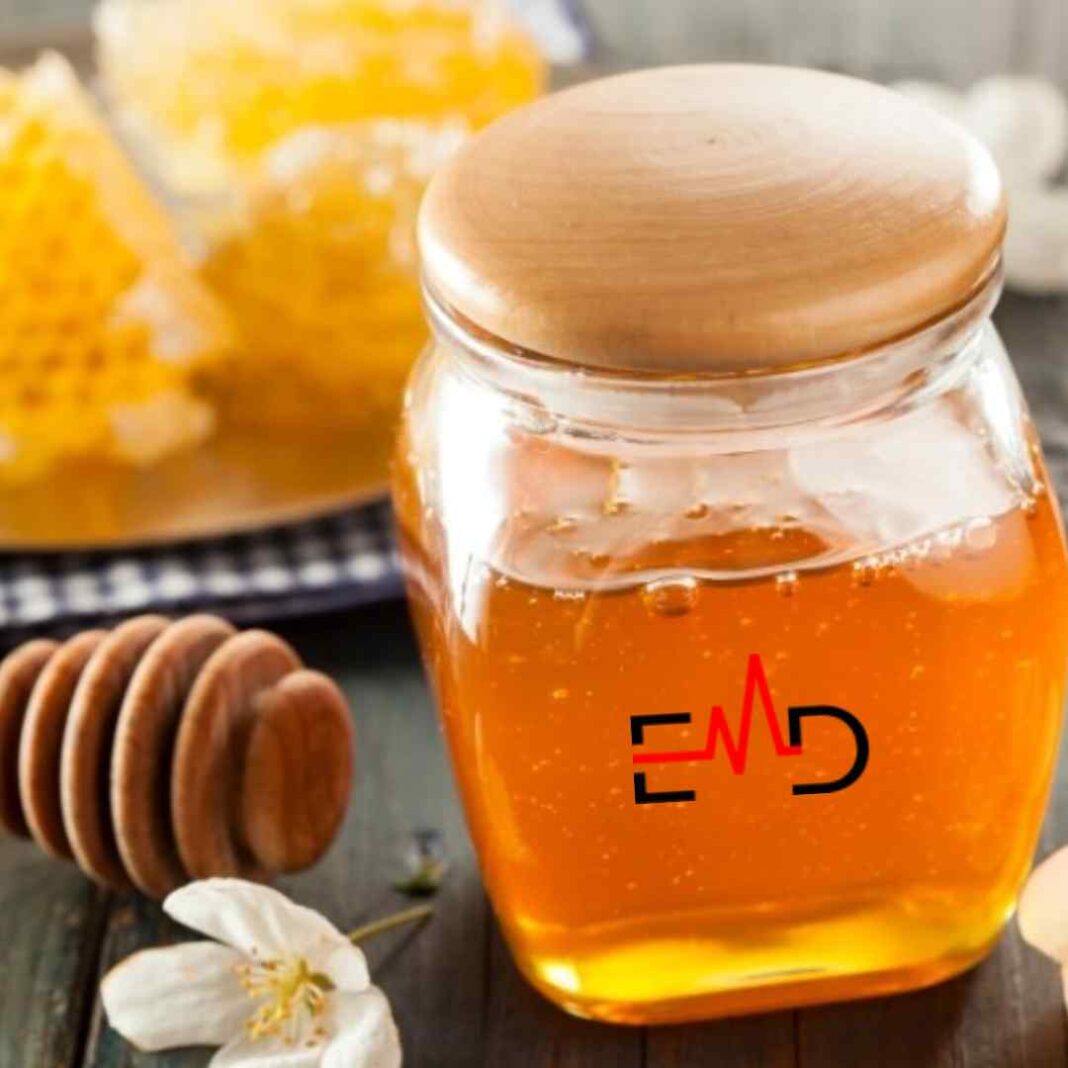Exercise Daily – In the quest for optimal health and wellness, many people are turning to natural remedies that have been used for centuries. One such remedy that has gained significant attention is honey. Honey, a sweet and viscous liquid produced by bees from flower nectar, has been cherished for its delightful taste and potential health benefits. Let’s explore how honey can contribute to our well-being and its role as a natural remedy for everyday ailments.
Honey, a natural sweetener derived from the nectar of flowers, has been used for centuries for its nutritional and medicinal properties. For athletes, honey offers a unique blend of benefits that can enhance performance, support recovery, and contribute to overall health.
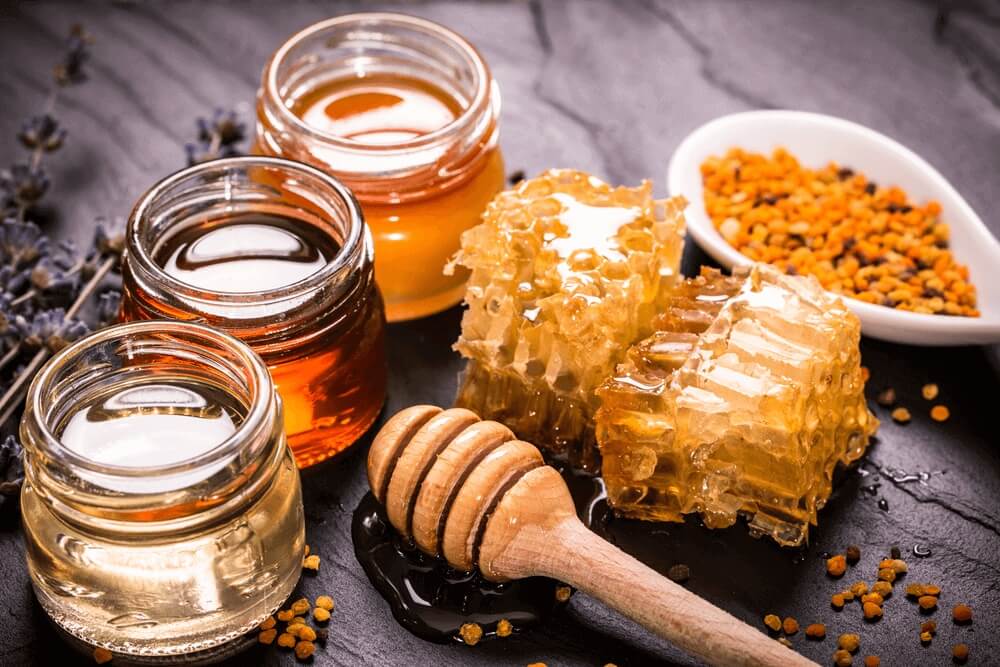
The Power of Honey for Health
Honey is not just a sugary treat; it possesses remarkable properties that can positively impact our health. Let’s uncover some of the key benefits that honey brings to the table.
Antioxidant Properties of Honey
To understand the power of honey as a health booster, we need to explore its antioxidant properties. Antioxidants protect our cells from damage caused by harmful molecules called free radicals. Honey, particularly raw honey, is rich in antioxidants that can help neutralize these free radicals and reduce oxidative stress in the body.
Understanding Antioxidants
Antioxidants are like superheroes that defend our cells against the villains of oxidative stress. They help prevent or slow down damage to our cells and DNA, which can contribute to various health conditions. We can fortify our bodies with natural defenses by consuming antioxidant-rich foods like honey.
Role of Antioxidants in Maintaining Health
The role of antioxidants in maintaining our health goes beyond just fighting free radicals. Antioxidants have been linked to a reduced risk of chronic diseases, such as heart disease and certain types of cancer. They also play a vital role in supporting our immune system and promoting overall well-being.
Honey as an Antioxidant-Rich Food
When it comes to antioxidant-rich foods, honey takes the spotlight. The unique combination of antioxidants found in honey, including polyphenols and flavonoids, contributes to its potent antioxidant activity. Regular consumption of honey may offer protective effects against oxidative stress and its associated health risks.
Nutritional Value of Raw Honey
Honey is not only an antioxidant powerhouse but also a source of essential nutrients. Raw honey, in particular, retains more of these nutrients compared to processed honey.
Essential Nutrients in Honey
Raw honey contains various nutrients that can contribute to our overall health. It is a natural source of carbohydrates, providing us with energy to fuel our daily activities. Also, honey contains trace amounts of vitamins and minerals, such as vitamin C, calcium, and potassium, essential for various bodily functions.
Health Benefits of Honey’s Nutritional Profile
The nutritional profile of honey offers several health benefits. The carbohydrates in honey provide a quick energy boost, making it an excellent choice for athletes or those needing an instant pick-me-up. Vitamins and minerals support our immune system, bone health, and electrolyte balance. Incorporating honey into our diet can be a simple way to enhance our overall well-being.
Honey’s Antibacterial Properties
Beyond its antioxidant and nutritional properties, honey also exhibits impressive antibacterial effects. This makes it a valuable natural remedy for various ailments, including wound healing and cough relief.
How Honey Fights Bacteria
Honey contains natural antibacterial properties that can help combat infections. It creates an unfavorable environment for bacteria to thrive due to its low water content, acidic pH, and the presence of hydrogen peroxide. These factors work together to inhibit bacterial growth and promote healing.
Honey’s Role in Wound Healing
The antibacterial properties of honey make it an effective remedy for wound healing. Applying honey topically to wounds can help prevent infection, reduce inflammation, and promote tissue regeneration. Its natural moisturizing properties also create an optimal environment for the healing process.
Honey as a Natural Cough Remedy
Honey’s soothing properties extend to its ability to alleviate cough symptoms. Its thick consistency forms a protective layer in the throat, reducing irritation and coughing. Honey is often a natural alternative to cough syrups, especially in common colds and respiratory infections.
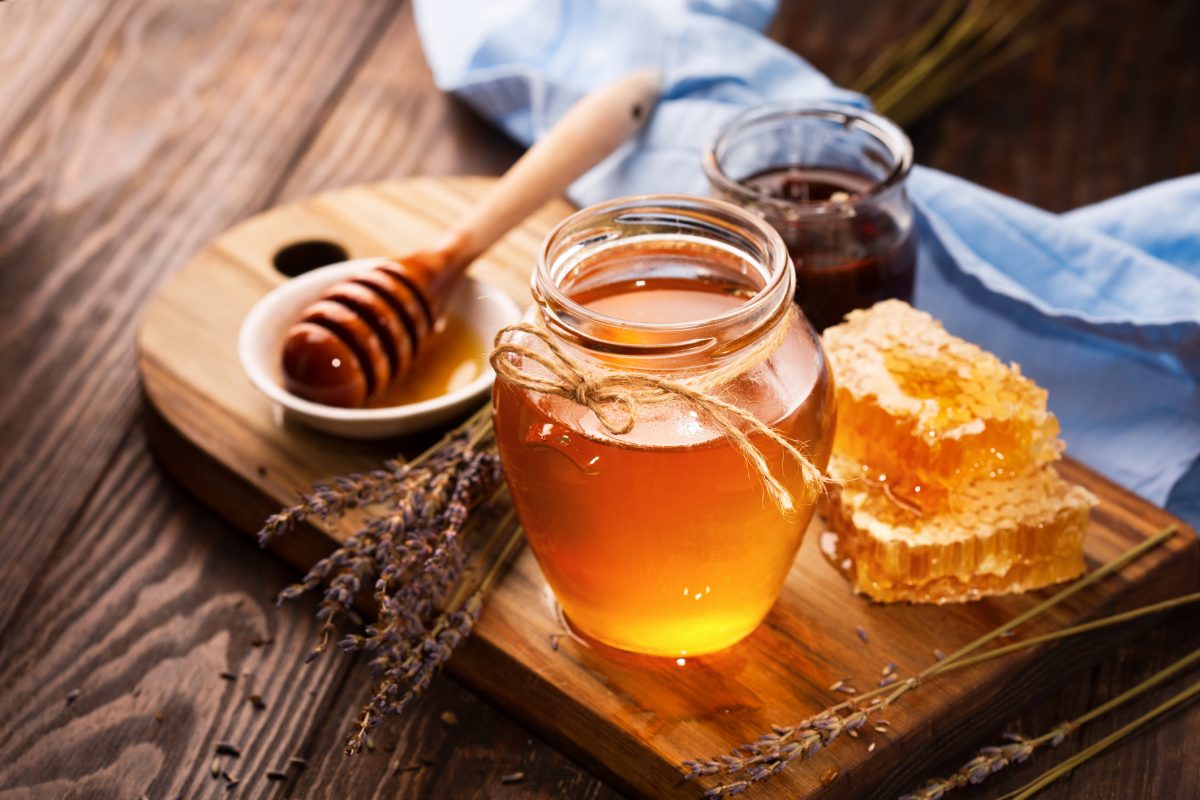
How Honey Benefits Athletes’ Health
Natural Energy Source
Rich in Carbohydrates: Honey is an excellent source of carbohydrates, the primary fuel for athletes. It contains glucose and fructose, which are easily absorbed by the body, providing a quick and sustained energy boost. This makes honey an ideal pre-workout snack to fuel training sessions or competitions.
Sustained Energy Release: The combination of glucose and fructose in honey allows for an immediate energy spike and a slower, sustained release of energy. This dual action helps athletes maintain energy levels during prolonged physical activities.
Enhances Athletic Performance
Improved Endurance: Studies have shown that consuming honey before and during exercise can enhance endurance by maintaining blood sugar levels and providing a steady energy supply. This helps delay the onset of fatigue, allowing athletes to perform at their peak for longer periods.
Boosts Recovery: Post-exercise, honey can help replenish glycogen stores, the body’s primary energy source. Replenishing glycogen levels is crucial for recovery, and honey, with its natural sugars, aids in this process, ensuring quicker recovery times and readiness for the next workout.
Supports Muscle Recovery
Anti-inflammatory Properties: Intense physical activity can lead to muscle inflammation and oxidative stress. Honey contains antioxidants and anti-inflammatory compounds that help reduce inflammation and oxidative damage, promoting faster muscle recovery.
Protein Synthesis: Consuming honey with protein after a workout can enhance protein synthesis, which repairs and builds muscle tissue. The carbohydrates in honey help transport amino acids into muscle cells, optimizing recovery.
Immune System Support
Rich in Antioxidants: Honey is packed with antioxidants, such as flavonoids and phenolic acids, which help protect the body from free radicals that can cause cellular damage. Maintaining a strong immune system is crucial for athletes, especially during intense training periods, and honey contributes to overall immune health.
Antimicrobial Properties: Honey’s natural antimicrobial properties can help ward off infections, keep athletes healthy, and reduce the risk of illness that could disrupt training schedules.
Aids in Hydration
Electrolyte Balance: Honey contains small amounts of vitamins and minerals, including potassium, vital for maintaining electrolyte balance. Proper hydration and electrolyte levels are essential for muscle function, and honey can contribute to maintaining these levels, especially when added to water or sports drinks.
Promotes Digestive Health
Prebiotic Effects: Honey acts as a prebiotic, supporting the growth of beneficial gut bacteria. A healthy gut is essential for nutrient absorption and overall well-being, particularly for athletes who need optimal digestion to fuel their bodies effectively.
Soothes Gastrointestinal Issues: For athletes who experience digestive discomfort, such as indigestion or acid reflux, honey’s soothing properties can help alleviate these issues, ensuring that the digestive system functions smoothly.
Natural Wound Healing
Topical Application: Athletes often face minor injuries like cuts, scrapes, or blisters. Honey’s antimicrobial and healing properties make it an excellent natural wound remedy. Applying honey to the affected area can promote faster healing and reduce the risk of infection.
Mental Focus and Cognitive Function
Brain Fuel: The natural sugars in honey not only provide physical energy but also fuel the brain, enhancing cognitive function. Maintaining mental focus during training and competition is critical for athletes, and honey can help sharpen concentration and reaction times.
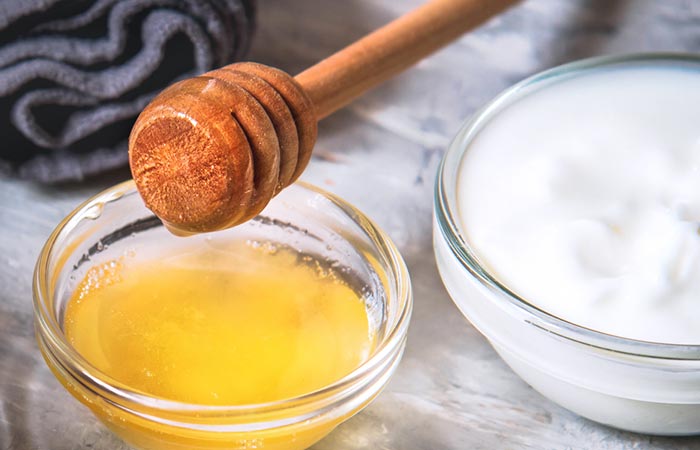
Exploring the Diversity of Honey
Honey comes in various types, each with its own unique characteristics and potential health benefits. Let’s take a closer look at two notable examples: Manuka honey and different honey varieties.
Manuka Honey and Its Unique Health Benefits
Manuka honey has gained significant popularity recently due to its exceptional health benefits. It is produced by bees that pollinate the Manuka bush, native to New Zealand.
What Makes Manuka Honey Special?
Manuka honey stands out for its high methylglyoxal (MGO) concentration, a compound responsible for its unique antibacterial properties. The higher the MGO content, the greater the potential health benefits of Manuka honey.
Potential Health Benefits of Manuka Honey
The consumption of Manuka honey has been associated with various health benefits. Its antibacterial properties make it effective against certain bacteria, including those resistant to antibiotics. Manuka honey is also believed to support digestive health, promote oral hygiene, and boost the immune system. When considering the potential health benefits of honey, Manuka honey deserves special recognition.
The Varieties of Honey
Honey comes in a delightful array of flavors and textures, thanks to the diverse floral sources from which bees collect nectar. Let’s explore some popular honey varieties and their potential health benefits.
A Taste of Different Honey Types
From the light and delicate flavor of clover honey to the robust robustness of buckwheat honey, each honey variety offers a unique taste experience. The flavor profile is influenced by the types of flowers the bees visit, resulting in a wide range of options for honey lovers.
Health Benefits of Various Honey Varieties
Different honey varieties may offer additional health benefits due to the specific properties of the flowers from which the nectar is sourced. For example, acacia honey is known for its potential anti-inflammatory properties, while buckwheat honey has been associated with antioxidant benefits. Exploring the world of honey varieties allows us to discover new flavors while reaping additional health rewards.
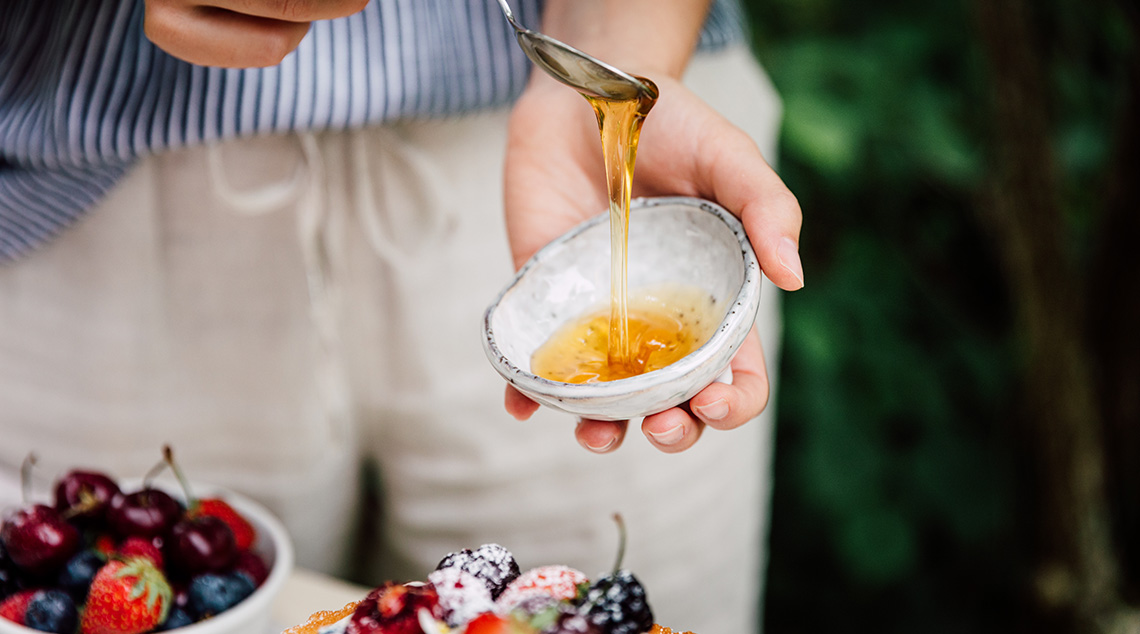
Making Honey a Part of Your Healthy Lifestyle
Incorporating honey into your daily routine can be a simple and enjoyable way to enhance your overall health. Let’s explore some practical tips for selecting and using the right honey creatively.
Choosing the Right Honey
When it comes to buying honey, it’s essential to make informed choices. Consider the following factors to ensure you get the best honey for your needs.
Raw Honey vs. Processed Honey
Raw honey is the purest form of honey as it undergoes minimal processing and retains most of its natural properties. On the other hand, processed honey undergoes filtration and pasteurization, which can affect its nutritional composition. Opting for raw honey allows you to enjoy the full benefits of this natural remedy.
Factors to Consider When Buying Honey
When purchasing honey, consider the source, quality, and production methods. Look for reputable brands or local beekeepers prioritizing sustainable and ethical beekeeping practices. Additionally, consider the flavor profile and consistency best suits your preferences and intended use.
Creative Ways to Use Honey
Honey’s versatility extends beyond being a simple sweetener. Here are some creative ways to incorporate honey into your daily life:
Honey in Recipes and Beverages
Add a touch of sweetness and depth of flavor to your favorite recipes and beverages with honey. Whether drizzling honey over yogurt, using it as a glaze for roasted vegetables, or sweetening your morning tea with honey, there are countless ways to get creative in the kitchen with this natural sweetener.
Honey as a Natural Sweetener
Replace processed sugar with honey in your recipes to enjoy its natural sweetness and added health benefits. Honey can be used in baking, cooking, and even as a topping for pancakes, waffles, or toast. Its unique flavor profile can enhance the taste of both sweet and savory dishes.
Honey for Skincare and Beauty
Honey’s benefits extend beyond consumption; it can be used topically for skincare and beauty purposes. Honey has moisturizing and antibacterial properties that can help nourish the skin, soothe irritation, and promote a healthy complexion. You can create homemade face masks, scrubs, and hair treatments by combining honey with other natural ingredients.
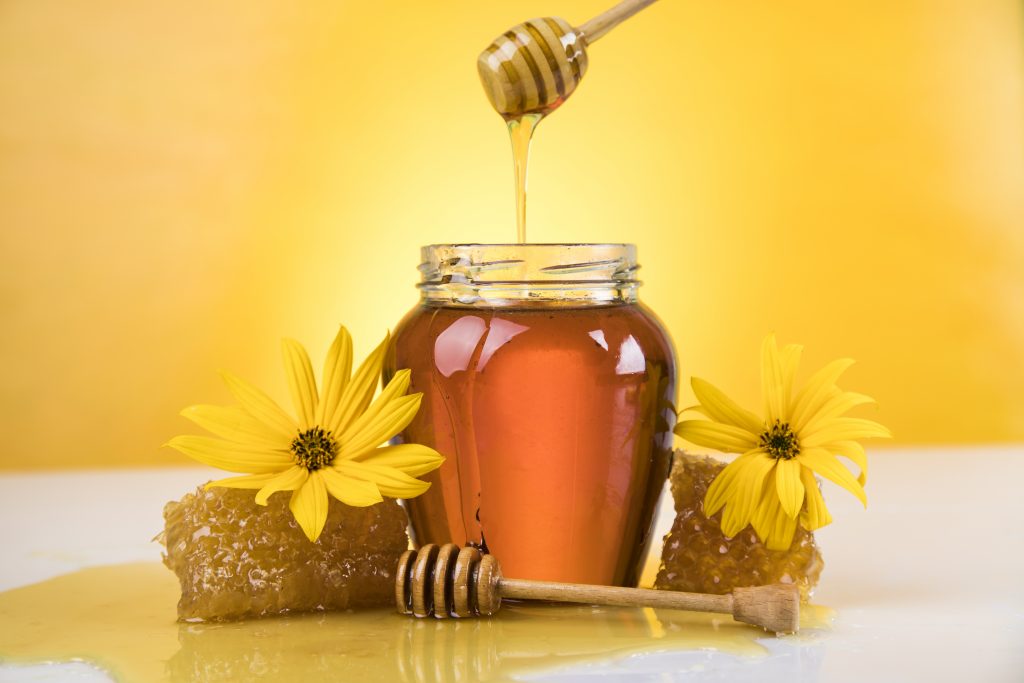
Frequently Asked Questions about Honey and Health
Q: Is giving honey to children under one-year-old safe?
A: No, giving honey to infants under one year old is unsafe. Honey may contain spores of the bacteria Clostridium botulinum, which can cause botulism in infants. Their digestive systems are not developed enough to handle the bacteria, so avoiding giving honey to young children is best.
Q: Can honey be applied topically to treat skin conditions?
A: Yes, honey can be applied topically for various skin conditions. Its antibacterial and moisturizing properties make it beneficial for treating acne, soothing dry skin, and promoting wound healing. However, doing a patch test first and consult a healthcare professional or dermatologist if you have any specific concerns is always advisable.
Q: What are the potential risks of consuming too much honey?
A: While honey offers health benefits, consuming excessive amounts can have drawbacks. Honey is high in calories and natural sugars so that overconsumption can contribute to weight gain and an increased risk of dental cavities. Enjoying honey in moderation is important as part of a balanced diet.
Q: Are all honeys the same, or are there differences in quality?
A: Not all honey is the same, and there can be differences in quality. Factors such as the floral source, geographical location, beekeeping practices, and processing methods can influence the taste, texture, and nutrient composition of honey. Opting for raw honey and choosing reputable brands or local beekeepers can help ensure higher quality honey.
Q: How does honey compare to other natural sweeteners regarding health benefits?
A: Honey offers some unique health benefits compared to other natural sweeteners. While it is still a source of natural sugars, honey contains additional nutrients, antioxidants, and potential antibacterial properties that set it apart from refined sugar or artificial sweeteners. However, moderation is key, and it’s essential to consider individual dietary needs and preferences when choosing sweeteners.
Conclusion
Honey is more than just a sweet indulgence; it is a natural remedy with many potential health benefits. From its antioxidant properties and nutritional value to its antibacterial effects, honey can contribute to our overall well-being. Whether you choose the unique benefits of Manuka honey or explore the diverse flavors of different honey varieties, incorporating honey into your daily life can be a simple and enjoyable way to enhance your health. So, seize the opportunity to harness the power of honey and discover the wonders it can bring to your everyday ailments.

